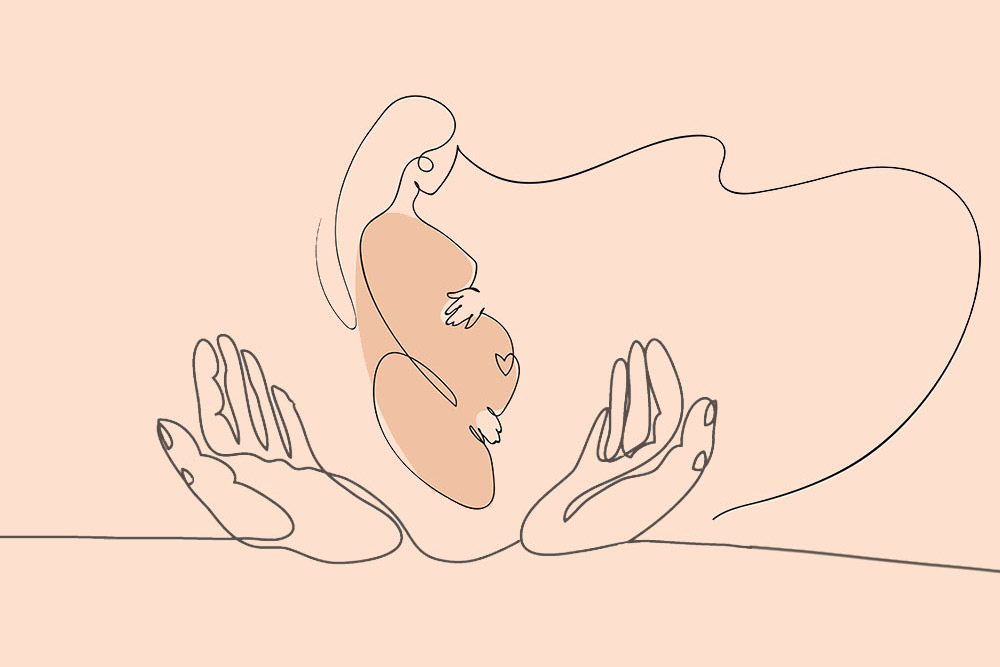6 Maternal Health Organizations Working to Support Mothers

When it comes to the well-being of expectant and new moms, one thing is for certain: Health outcomes for women are not equal, and there’s work to be done to create safer pregnancy and postpartum experiences for all. Whether you’re in need of resources, are looking to participate in maternal advocacy or want to be better informed on maternity care, these health programs and nonprofit groups are taking charge of disparities and fighting for the quality improvement of care for pregnant women and mothers.
Confronting Maternal Mortality for All
A maternal death is defined by the World Health Organization as, “the death of a woman while pregnant or within 42 days of termination of pregnancy, irrespective of the duration and the site of the pregnancy, from any cause related to or aggravated by the pregnancy or its management, but not from accidental or incidental causes.”
In 2019, the Centers for Disease Control and Prevention (CDC) reported that 754 women died of maternal causes in the U.S., an increase from 658 in 2018. Of those mothers, mortality rates for non-Hispanic black women were significantly higher than rates for non-Hispanic white and Hispanic women. To better combat this public health issue, these organizations are helping identify root causes and pursuing step-by-step solutions.
Every Mother Counts
Seeking to make pregnancy and childbirth safe for every woman everywhere, the charity Every Mother Counts confronts the lack of adequate health equity for women from a global standpoint. Their work centers around giving grants, raising awareness through partnerships and mobilizing communities of passionate allies to take action.
Utilizing film, storytelling, data and research, their team has been building public acknowledgment and response to poor maternal care. Grants are used to support programs that are community-based with an emphasis on serving women who are underserved and marginalized. Through funding, Every Mother Counts aims to strengthen providers and health systems, facilitate access to resources, further advance proven models of care, and ultimately, place mothers at the center of this important conversation.
The National Birth Equity Collaborative
The NBEC is working to rectify the systematic issues that contribute to poor maternal health outcomes, black maternal death and infant mortality. By addressing the large-scale problems at hand, this non-profit organization seeks to remove the blame from black pregnant people and shine light on racial disparities within the system. NBEC offers training, research, technical assistance, policy, advocacy and community-centered collaboration that focuses on reproductive health and well-being of black birthing people worldwide.
Joia Crear-Perry, MD, founder and president of NBEC says that “Racism, not race, is what’s killing black mamas and babies.” Shifting the culture within public health services and creating a more inclusive environment that fosters equality and respect for all women and their children remains a primary goal of NBEC’s efforts.
Advocating for Paid Parental Leave
The U.S. is one of six countries with no national paid leave. Currently, congress is considering four weeks of paid family and medical leave (down quite a bit from the 12 weeks initially proposed), which still lags behind in comparison with the rest of the world.
Maternity leave allows for a mother to rest, recover, bond with her newborn and establish breastfeeding before reentering the world. Though a lack of paid leave has always been a problem, it has been highlighted amidst the pandemic when many families faced additional financial hardships and complications in balancing work with family responsibilities. This organization is looking to change that for future parents and their children.
National Partnership for Women and Families
The NPWC believes that our maternity care system often fails to provide equitable, high-quality and affordable care. One major problem within the system is a lack of national paid leave, which compromises child health and the well-being of a new mom.
According to their site, about 80 percent of U.S. workers are left without paid time off after the birth or adoption of a child. What’s more, approximately 46 percent are not even guaranteed unpaid, job-protected leave through the Family and Medical Leave Act (FMLA). This means that while many workers need leave time, there are people who do not take it due to financial pressures. This leads to a host of issues, as studies point to paid leave being a factor in reducing a multitude of post-birth complications.
Their organization advocates for paid leave for new parents, people who are recovering from stillbirth, miscarriage and other pregnancy complications through ongoing initiatives.
Paving a Way to Quality Prenatal Healthcare
Mothers deserve choices when it comes to their pregnancy and birth teams and the ability to access the type of healthcare professionals that best fulfill their visions. Midwifery and doula care services are vital to birthing women, but unfortunately are not always available due to location and insurance coverage. These nonpartisan organizations are working to better connect expectant moms to alternative healthcare providers.
MomRising
Hoping to build a more family-friendly America, MomRising‘s one million+ members partner with legislators and serve on committees to expand their influence and impact in the maternal justice space.
Currently, they are engaged in helping pregnant women find care outside of OB/GYN doctors while advocating for better reimbursements for midwives and doulas. According to the CDC, approximately two in five deliveries in the U.S. are covered by Medicaid as the primary source of payment. With Medicaid coverage, patients are not always able to seek out the providers of their choosing or pursue the birth experience they ultimately desire. To help raise awareness, their team attends town meetings and rallies to utilize storytelling and paint real-life pictures of this problem at a local level.
Sista Midwife Productions
This nonprofit offers online and in-person doula training to help preserve the legacy of black midwifery. Their database Sista Midwife Directory lists black midwives, doulas, lactation specialists and more by their geographic location to make it easier for pregnant women and mothers searching for these resources to get connected to black birth workers.
Supporting Mental Health and Postpartum Care
Postpartum depression and mental health issues are real risks to women, and unfortunately, are not always reported or treated properly once mom has an infant to tend to and her self-care takes a backseat. Thankfully help is available.
Postpartum Support International (PSI)
PSI is the world’s leading nonprofit organization aiding women suffering from pregnant or perinatal and postnatal mood disorders. (Though lesser known, depression and anxiety during pregnancy are also very prevalent in expectant women.) Their mission is to normalize and promote awareness, prevention and treatment of the emotional changes and complications that arise in pregnancy and postpartum, believing that when a mother’s mental health care is compromised, it affects the entire family.
Through educating and training community health workers and the public at large, PSI aims to ensure that every woman and family has access to the right resources. They offer a PSI helpline, local and online group support, expert guidance, peer mentor programs and much more.







